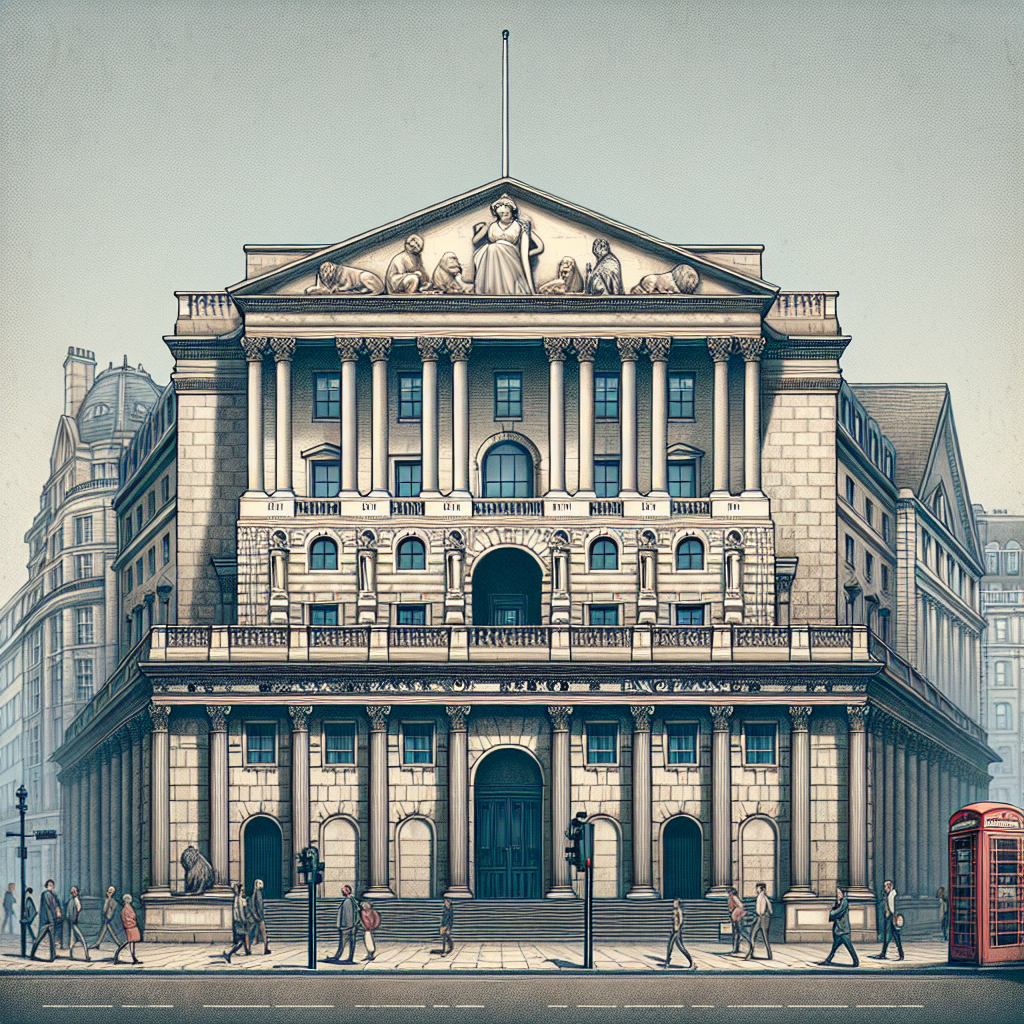Bank of England Holds Rates Amid Inflation Concerns Ahead of Election
The Bank of England has decided to keep its main interest rate at 5.25%, despite inflation hitting the 2% target. The decision reflects differing views among policymakers on future inflation and comes shortly before a general election. Some central banks have begun cutting rates as inflation pressures ease.

- Country:
- United Kingdom
The Bank of England maintained its main interest rate at a 16-year high of 5.25% on Thursday, despite inflation falling to the 2% target. Several policymakers cautioned that lowering rates prematurely could trigger another inflation surge.
For the second consecutive meeting, seven of the nine members on the Monetary Policy Committee voted to keep rates unchanged, with two dissenting in favor of a cut. The consensus to maintain rates has persisted since August following a series of increases.
The decision underscores a split in opinion about inflation's trajectory, particularly concerning high prices in the services sector, a significant driver of the UK economy.
Bank of England Governor Andrew Bailey, who supported no change, hailed the inflation milestone. "It's good news that inflation has returned to our 2 per cent target. We need to be sure that inflation will stay low, and that's why we've decided to hold rates at 5.25 per cent for now," he stated.
The ruling may come as a setback for the Conservative Party ahead of the imminent general election, as Prime Minister Rishi Sunak could have leveraged a rate cut as positive economic news.
The Committee clarified that the upcoming election, expected to favor the opposition Labour Party led by Keir Starmer, did not influence their decision. They emphasized that their focus remains on maintaining the 2% inflation target sustainably in the medium term.
Economists predict a rate cut soon, possibly in the bank's next meetings in August or September. They anticipate evidence showing inflation will remain around the target in the near future.
"We continue to think that the MPC will start dialing down restrictive policy from summer and deliver two rate cuts this year," said Sanjay Raja, chief UK economist at Deutsche Bank.
Although a drop in the main inflation measure to a near three-year low of 2% in May indicates slower price growth, it doesn't reflect price reductions. The cost of living crisis continues to affect millions in the UK.
Global central banks had hiked rates from pandemic lows to tackle rising prices triggered by supply chain disruptions and geopolitical tensions, notably Russia's invasion of Ukraine. Higher borrowing costs have cooled inflation but also stifled the British economy's growth since its pandemic recovery.
Critics argue that the Bank of England's cautious stance on inflation, mirrored by the US Federal Reserve, could unduly harm economic growth. Suren Thiru of the Institute of Chartered Accountants in England and Wales argued, "Rate setters remain too circumspect over the likelihood of loosening policy, risking unnecessarily impeding the UK's growth prospects."
Other central banks, including the European Central Bank, have begun cutting rates as inflation pressures ease, with the Swiss National Bank reducing its rates by a quarter percentage point to 1.25% on Thursday.
(This story has not been edited by Devdiscourse staff and is auto-generated from a syndicated feed.)
ALSO READ
UGRO Capital Raises INR 1,265 Crores Amidst General Elections
Gambling Allegations Rock Conservative Party Ahead of Election
Betting Scandal Hits UK Conservative Party Over Early Election Date Tip-offs
UK Election Scandal: Inside Information and Betting Allegations Shake Conservative Party
Election Betting Scandal Rocks Conservative Party










